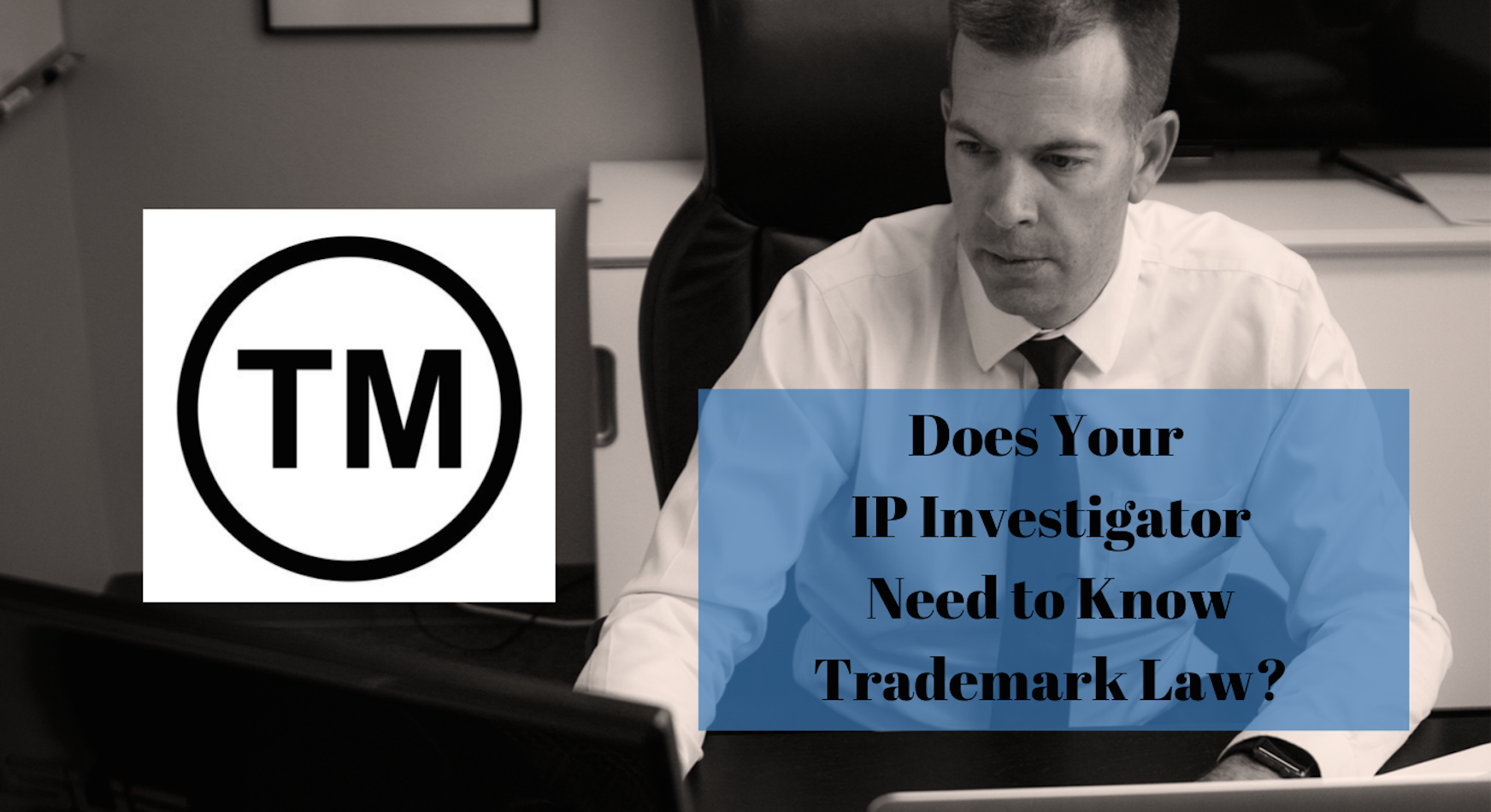
In a Trademark Law case it is critical that attorneys uncover and present relevant and actionable evidence and information.
Does the investigator that you and your firm works with need to understand Trademark Law? Do they need to understand the standards of evidence? Do they need to know about attorney work product privilege?
The answer to the above questions is a resounding YES. In order to effectively and efficiently develop admissible evidence, your IP Investigator should be experienced and understand the basics of Trademark Law (Lanham Act) because it will guide the investigation and the report.
Additional there are some keywords and phrases that your IP Investigator should understand.
Filing Basis:
1. Section 1(a) Registration
2. Section 1(b) of the Lanham Action (Intent to Use)- The ITU trademark application allows you to reserve rights to a trademark while you prepare to launch your product/service in commerce.
3. Foreign Registration
4. Foreign Application
2. Section 1(b) of the Lanham Action (Intent to Use)- The ITU trademark application allows you to reserve rights to a trademark while you prepare to launch your product/service in commerce.
3. Foreign Registration
4. Foreign Application
ITU (Intent to Use)
Specimen
Abandonment:
According to 15 USC 1127, a trademark is considered abandoned if “it’s use has been discontinued with intent not to resume such use.” The intent not to resume may be inferred from circumstances.
- Trademark abandonment, therefore, requires two elements:
1. nonuse; and
2. intent not to resume use.
Nonuse for 3 years is the typical standard
Common Law Use
Classes of Goods and Services
One of the key legal premises for US Trademark rights is the idea that in the US we are a first to “use” country as opposed to a “first” to file country. This means that Trademark rights (state or federal) can be established through the filing of a business name (Corporation, LLC, DBA), Business Name, Taglines, design elements, Logo or Brand, Product Name/Line, etc. There are limitations on enforcement and legal remedies if you only possess common law rights. On the flip side if you are looking to clear and register a trademark, those pesky COMMON LAW uses of your mark or a similar mark need to be uncovered to avoid potential infringement.In order for the report and or work product to be admissible, it is vital the trademark investigation is conducted in an ethical manner by a licensed and experienced investigator or license investigation firm. This type of consideration is not always top of mind when a case starts but can be a major issue if and when the reports must be turned over, depositions are set and there is a need to present the evidence and information at trial. The first thing that the other side will do is pick apart the investigation and the investigator. They will look at the credentials, licensing and methodology of the investigator because if they can show the investigation was done improperly the evidence can be thrown out.
The IP Investigator that you are working with must understand the relationship that they have between the end client and the attorney. It is really important to funnel all communication, reports and invoices to the attorney representing the client to keep the work product protected. We would also suggest that email communication be kept to a minimum to avoid having to turn over emails that might reveal information that is not favorable to the case. If your IP Investigator is licensed, experienced and understands Trademark/IP Litigation rules of evidence and attorney work product they will suggest ways to limit the exposures referenced in this blog.
Remember to ask your investigator these questions…
- Are you licensed? Individually and as a firm/agency?
- Have your reports and work product been submitted as evidence in cases at the State and Federal Court Level?
- Have you and or your team been deposed?
- Have you and or your team testified in trial?
- Are you an expert witness?
- Do your reports contain specific language about attorney work product privilege?
Link: Federal Trademark Search (USPTO)